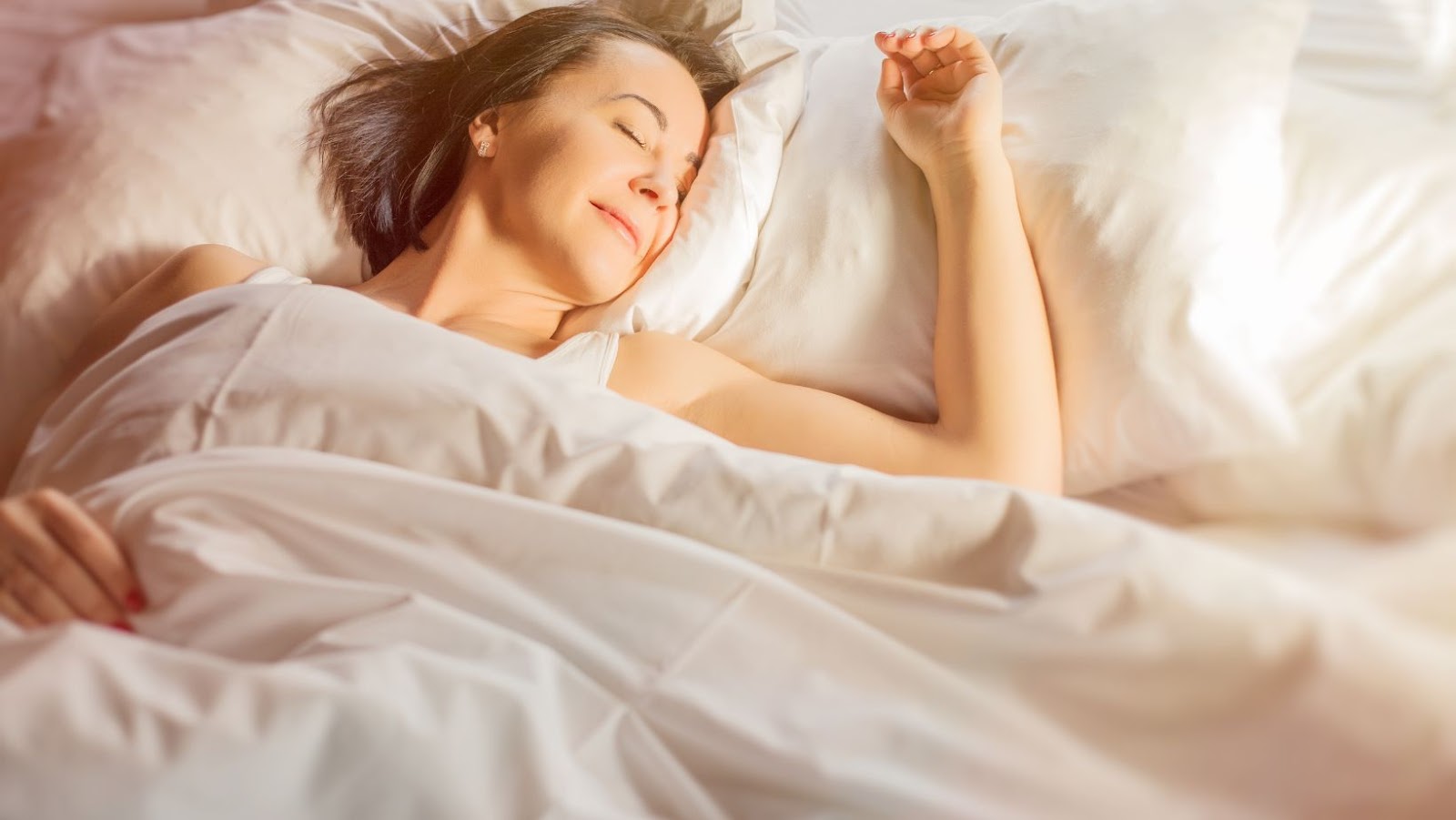Sleep plays a vital role in maintaining good mental health. It is important for cognitive functioning, memory consolidation, metabolism, and immune system.
During sleep, the brain processes and consolidates memories, regulates emotions, and restores the body’s physical energy. Adequate sleep is essential for maintaining good cognitive function, mood, and overall well-being.
Sleeping and Mental Health
Many people experience sleep-related problems. The condition can be caused by a number of different factors.
Studies have shown that sleep disorders may be associated with anxiety and depression, psychiatric disorders that affect the brain. People with these disorders can suffer from a sharper stress level, excess fear, and obsessive thoughts.
Research has found that a lack of sleep is linked to a higher risk of suicidal thoughts. This is one of the most serious consequences of a lack of sleep.
Sleep-related mental health issues can be assessed in primary care. A trained health professional can help you determine the root cause of your condition, provide tailored care, and review the potential risks and benefits of treatment.
For patients who have already been diagnosed with a psychiatric disorder, treatment may involve changes to sleep. Treatment options include sleeping medication, psychological treatments, or changing sleep habits.
How Does Lack of Sleep Affect Mental Health?
Sleep is a vital part of a person’s mental health. Insufficient sleep can cause stress, anxiety, and depression. It can also interfere with your ability to think clearly, recall memories, and make decisions. A lack of sleep can be very dangerous, especially when it’s untreated.
One of the most common types of sleep problems is insomnia. While it is difficult to diagnose, it can often be a symptom of depression or other mental health issues.
Another type of sleep problem is obstructive sleep apnea. Obstructive sleep apnea is characterized by periods of pauses in breathing while you are asleep. Oftentimes, obstructive sleep apnea can be debilitating. This is because the body’s oxygen levels are depleted during the night.

Several studies have suggested a link between sleep disorders and psychiatric disorders. These studies have shown that insufficient sleep increases the risk for anxiety, depressive disorders, and other emotional problems.
There’s more research on the connection between sleep and mental health. Studies are being done to determine if there’s a bidirectional relationship between sleep and mental health.
In a recent study, the relationship between inadequate sleep and frequent mental distress was examined. The association between sleep problems and mental illness has been viewed as a symptom-disease relationship.
Sleep Aid
Did you know that you can make your sleep better by using certain remedies?
The right sleep aid can help improve your mental health. Getting a good night’s rest is not only important to your body’s ability to recover, but it can also help you cope with stress and improve your personal relationships. Good sleep is also necessary to prevent mental illness.
There are several different types of sleep aids available, including over-the-counter (OTC) options and prescription medications. Sleep aids are usually not for long-term use and they should be used under your doctor’s supervision. However, if you do decide to try one of these products, it is important to understand the pros and cons.
Over-the-counter medications for insomnia can be quite effective, but they can also have some serious side effects. For example, many over-the-counter sleep aids contain antihistamines, which can have a negative effect on your ability to drive.
Similarly, they may interfere with other medication you are taking. You should avoid mixing your sleep aid with alcohol as this can have adverse effects.
Prescription medications for insomnia should be taken under the direction of your physician and should not be given to children. They may require higher dosages to get the desired effect. Some prescription medications for insomnia carry warnings about suicide.
There are many natural remedies that can help to improve sleep quality and overall mental health.
These remedies include Chamomile, Valerian Root, Melatonin, and CBD. By learning how to use these substances, you can help yourself get a good night’s rest and improve your mental health.
Melatonin
Melatonin and sleep affect mental health in several ways. It is a hormone secreted by the pineal gland and serves as a regulator of the body’s internal clock. Various studies have been conducted on melatonin to examine its role in depression and other disorders.
The effect of melatonin on sleep is mediated by melatonin receptors. The melatonin receptors 1 and 2 are directly related to phase shifting of the circadian rhythms.
Melatonin is also linked to neurotransmission and cell homeostasis. Studies have found that depressed individuals have lower nocturnal melatonin levels.

These findings may be related to decreased levels in the pineal gland. However, it has not been proven whether melatonin dysregulation causes depressive symptoms or merely makes them worse.
Melatonin supplements have been found to be effective in treating some specific sleep disorders. They have been used to help patients suffering from delayed sleep phase syndrome, primary insomnia, and sleep disturbances in middle-aged adults.
CBD
CBD is a cannabis derivative that is used for a variety of ailments. One of its most important functions is to help calm the nervous system. This may indirectly improve sleep. In some cases, it has been found to reduce pain.
In addition to its medicinal benefits, the molecule is not psychoactive and is generally considered safe. The most common side effects are mild and usually do not interfere with daily activity.
Studies have shown that cannabinoids may be useful in treating certain sleep disorders. One of the main studies looked at the role of THC in reducing nighttime nightmares in PTSD patients. Another study evaluated the effectiveness of CBD in improving sleep in patients with PTSD.
Cannabinoids have been shown to affect the limbic system, which may help control anxiety. However, more research is needed to learn how they work.
There is a lot of research about cannabinoids and sleep, but most of it has not been able to prove the efficacy of one or the other. One study suggests that delta-9 tetrahydrocannabinol may have a mild effect on sleep latency, while a newer study suggests that CBD may have the potential to improve sleep.
Delta 8 THC is thought to have a lower psychoactive effect than delta-9 THC and may produce a milder “high.” A few studies have suggested that delta 8 THC may help with sleep by reducing insomnia and promoting a deeper sleep.
Although some studies indicate that cannabinoids might help with sleeping, a more comprehensive review of the research has yet to be published.
A recent study conducted by researchers at Columbia University Medical Center and published in Current Psychiatry Reports, however, found that CBD may have an effect on sleep.
Valerian Root
One of the most common natural sleep aids is Valerian Root. It is known for its sedative effects, and is also used to help treat depression, anxiety, and menopause symptoms.
Valerian can be purchased as a powder or in tea form. Often, it is combined with other herbs to produce a more effective sedative effect. Valerian and hops are especially commonly combined for insomnia.
Valerian is believed to have an effect on GABA, a chemical messenger in the body. People who have low levels of GABA have been shown to have sleep problems. Increasing the amount of GABA in the brain can help you unwind and get a good night’s sleep.
You should not take valerian root if you are pregnant, breastfeeding, or have liver disease. You should also avoid taking it if you are using pharmaceutical drugs that contain sedatives.
Some people have had negative side effects from valerian, including drowsiness and dry mouth.
If you are considering using valerian as a sleep aid, you should speak with your doctor to discuss the possible side effects.
Chamomile
Chamomile is a herb that has been traditionally used for centuries to promote sleep and relaxation. The dried flowers of the chamomile plant are often used to make tea, which is the most common way to consume it.
There is some scientific evidence that chamomile may have sleep-promoting effects. A few studies have shown that chamomile tea may help people with insomnia fall asleep faster and stay asleep longer. Some studies have found that consuming chamomile extract may help to reduce the severity of insomnia.
Chamomile is thought to work by increasing levels of certain neurotransmitters in the brain that promote relaxation and sleep. It contains an antioxidant called apigenin which is believed to bind to certain receptors in the brain that promote sleep.
It’s important to note that chamomile is generally considered safe when consumed as a tea, but there are some potential side effects, such as allergic reactions, and it may interact with some medications.
It’s always recommended to consult with a healthcare professional before taking any herb or supplement, especially if you are pregnant or breastfeeding, or if you have a medical condition or are taking medications.
Conclusion
Sleep and mental health are closely linked. Adequate sleep is essential for maintaining good mental health, and lack of sleep can contribute to the development of mental health disorders such as depression and anxiety.
One of the best ways to improve your sleep is to make some lifestyle changes. If you’re not getting enough sleep, you may find it difficult to think clearly, concentrate, and recall memories. These are all signs that you’re not getting the sleep your body needs.
However, if you have a sleep disorder, you’ll need to seek treatment. Your doctor may recommend medication, psychotherapy, or both. They can also review the benefits and risks of various treatments.

